
Melissa del Bosque, longtime border reporter, asks Alex Rivera, director of “Sleep Dealer,” a question about the film and whether he thinks the border will be more prominently featured in sci-fi films in the future. (Stephanie Casanova/CALÓ News)
After his father is killed, a young man named Memo travels from his small town in Oaxaca, Mexico to the “city of the future,” Tijuana, to work as a U.S. laborer. Still, Memo will never set foot north of the Mexican border. He works in a factory where he plugs himself into a machine and controls a robot that helps build a skyscraper in San Diego.
The story is science fiction. It’s the premise of “Sleep Dealer,” a cyberpunk sci-fi film directed by Alex Rivera released in 2008 that stars Luis Fernando Peña, Leonor Varela and Jacob Vargas. Rivera spent 10 years working on the film, which won awards at the Sundance Film Festival and the Berlin International Film Festival upon its initial release.
Set in an imagined future where border crossing happens digitally, the film touches on topics like capitalism and the commodification of necessary resources like water, border militarization, war and migration.
“This is the American Dream,” the factory supervisor tells Memo on his first day. “We give the U.S. what they’ve always wanted. All the work without the workers.”
Seventeen years later, the film inches closer and closer to reality as the border wall is expanded across Arizona, the U.S. government increases surveillance at the border, drones are prominently used in warfare and climate change continues to displace people.
On Wednesday, Fox Tucson Theatre screened the film and hosted a panel discussion where Rivera, border journalist Melissa del Bosque and artist and educator David Taylor talked about those realities.
The film will be moved to the documentary category in 20 years, Rivera joked. He later said he wishes the film would lose relevance over time.
“I wish we were living in a world where AI was building schools and hospitals, and where we lived in a political reality where we'd overcome the border mind disease and instead we're saying, we actually want to take care of people, as humans, as brothers and sisters. We have enough to take care of each other. We need to take money from the billionaires and so all of us can have good things,” Rivera said. “I wish the border mind virus was in the past and this film was irrelevant. You know, unfortunately, not the case.”

Film poster for Alex Rivera's 2008 "Sleep Dealer." (Provided by Alex Rivera)
The future of capitalism imagined
Rivera, who is Peruvian-American, grew up watching his dad’s side of the family move to the U.S. to work in construction and the food service industry. His mom worked at IBM and introduced him to computers and technology. Both of these aspects of his life helped inspire the film, he said. He also read an article in Wired Magazine in 1996 about telecommuting that signaled a future of working from home with no traffic jams, Rivera told an audience of about 50 people on Wednesday.
He thought to himself, “What if my cousins worked from home when their home was Latin America and their work was in a restaurant in Queens? What would that look like?”
“It would make total sense to capitalism,” he remembers thinking at the time. “It would make total sense to our political reality in this country that has always kind of wanted the work of people who reproduce life, who work in food, who work in child care, who do the most essential things needed that work performed and rejected the people who do it.”
“Sleep Dealer” was Rivera’s first feature-length film. He has watched it grow in relevance and popularity over the years. He has also had moments where something in the film “clicks” for him or he sees it from a different perspective, he said.
About eight years ago, someone who had seen the film suggested to Rivera that he read a book called “24/7: Late Capitalism and the Ends of Sleep,” which explores the history of sleep and how, as capitalism expands and captures more of our attention, people are sleeping less.
“We're kind of always in shopping mode, always in production mode, and it's pushing up against sleep,” he said. “And sleep as the final terrain that's not been commodified. And reading that book, which I read, like 10 years after making this film, made the title [of my film] finally make sense.”

Alex Rivera (center), director of the 2008 film “Sleep Dealer,” discusses how he created the sci-fi film in the early 2000s. Rivera said the film has become increasingly relevant and realistic over time. (Stephanie Casanova/CALÓ News)
Living a militarized border reality
Melissa del Bosque has been reporting on the border since 1998, when Rivera first started working on the film. She said she “nerded out” on the film when she first saw it in 2009.
“I thought, ‘Oh, my God, this is scary. I hope this doesn't happen,’” she said she remembers thinking. “And here we are, almost 20 years later, and it just seems so, like you were saying, prescient. You know, so much of this with the water scarcity and climate change, the drones, the militarization — it's all happening.”
Rivera, who founded the Borderlands Cinematic Arts lab at Arizona State University, where he is now a professor, said that the future of the U.S. will be determined by how it reconciles the question of who is and isn’t welcome. He called the border a “site of paranoia, racial fear.” Border militarization is now “sweeping across the interior of the country,” Rivera said.
“The Borderlands, as a sort of permanent war zone in this country, has been this site of visual experimentation, a laboratory of development of future technologies. And so in many ways, if you want to see the future, look at the border” Rivera said. “And that's scary today.”
Javier Duran, director of the Confluencenter and a professor of Latin American Border Studies at the University of Arizona, said the film continues to resonate with audiences in different ways as time passes, keeping it relevant.
He pointed to the U.S. drone strikes against Venezuelan speedboats, killing more than 20 people since early September. In the film, a U.S. soldier connects to a drone and virtually controls the drone to Oaxaca, Mexico, where he blows up Memo’s home and kills his father.
“For somebody like me that has a little bit more of a longitudinal view of it, it's like we've seen this before, and now we're living it,” Duran said. “It's not speculation or imaginary, it’s reality.”
The discussion was part of Fox Tucson Theater and Cinema Tucson’s Borderlands Film and Dialogue series, a series that explores the histories and cultures of the U.S.-Mexico borderlands through cinema, serving as an anchor for dialogue. The theater also partnered with the University of Arizona and several other local organizations for the dialogue series.
On Oct. 22, the Fox Tucson Theater will screen "Take It Away," a documentary that shows the rise of Tejano and Regional Mexican music through the story of Johnny Canales, the host of a show that introduced viewers to Selena, Ramon Ayala, and Intocable, among other rising stars. The film and dialogue event starts at 7 p.m.
Stephanie Casanova is an independent journalist from Tucson, Arizona, covering community stories for 10 years. She is passionate about narrative, in-depth storytelling that is inclusive and reflects the diversity of the communities she covers. She recently covered the criminal justice beat at Signal Cleveland, where she shed light on injustices and inequities in the criminal legal system and centered the experiences of justice-involved individuals, both victims and people who go through the system and their impacted loved ones.

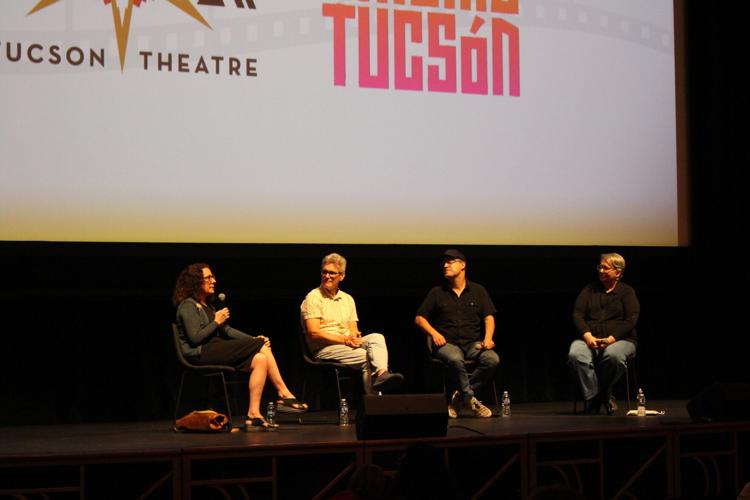
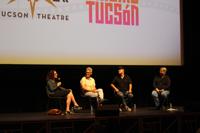
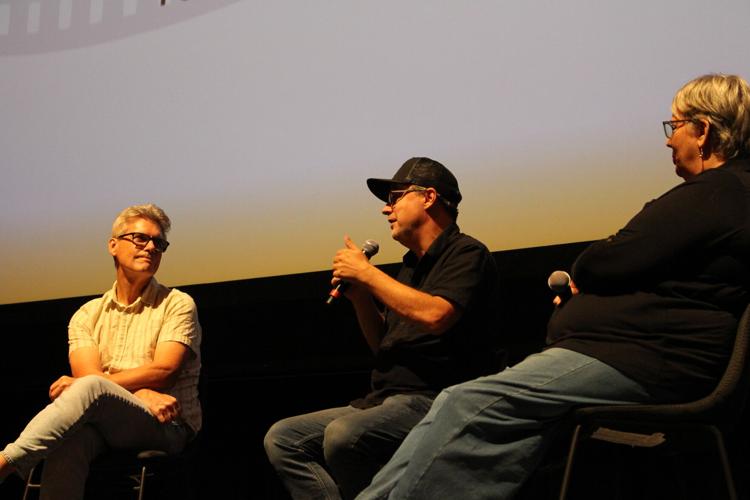

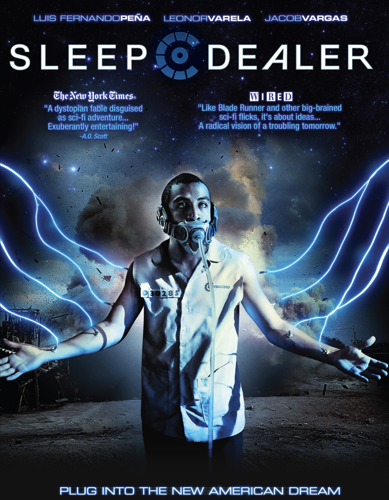
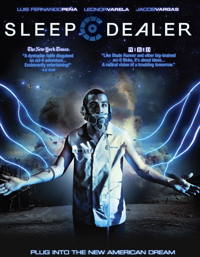

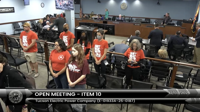






(0) comments
Welcome to the discussion.
Log In
Keep it Clean. Please avoid obscene, vulgar, lewd, racist or sexually-oriented language.
PLEASE TURN OFF YOUR CAPS LOCK.
Don't Threaten. Threats of harming another person will not be tolerated.
Be Truthful. Don't knowingly lie about anyone or anything.
Be Nice. No racism, sexism or any sort of -ism that is degrading to another person.
Be Proactive. Use the 'Report' link on each comment to let us know of abusive posts.
Share with Us. We'd love to hear eyewitness accounts, the history behind an article.